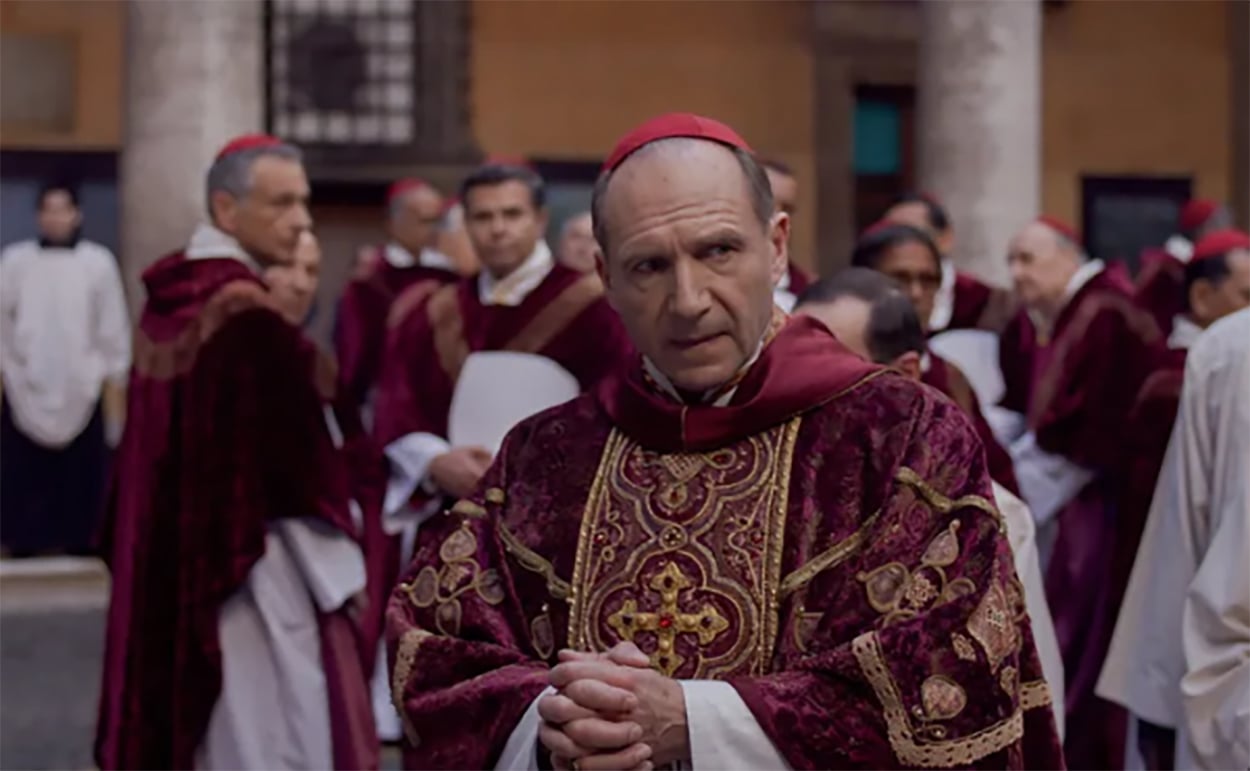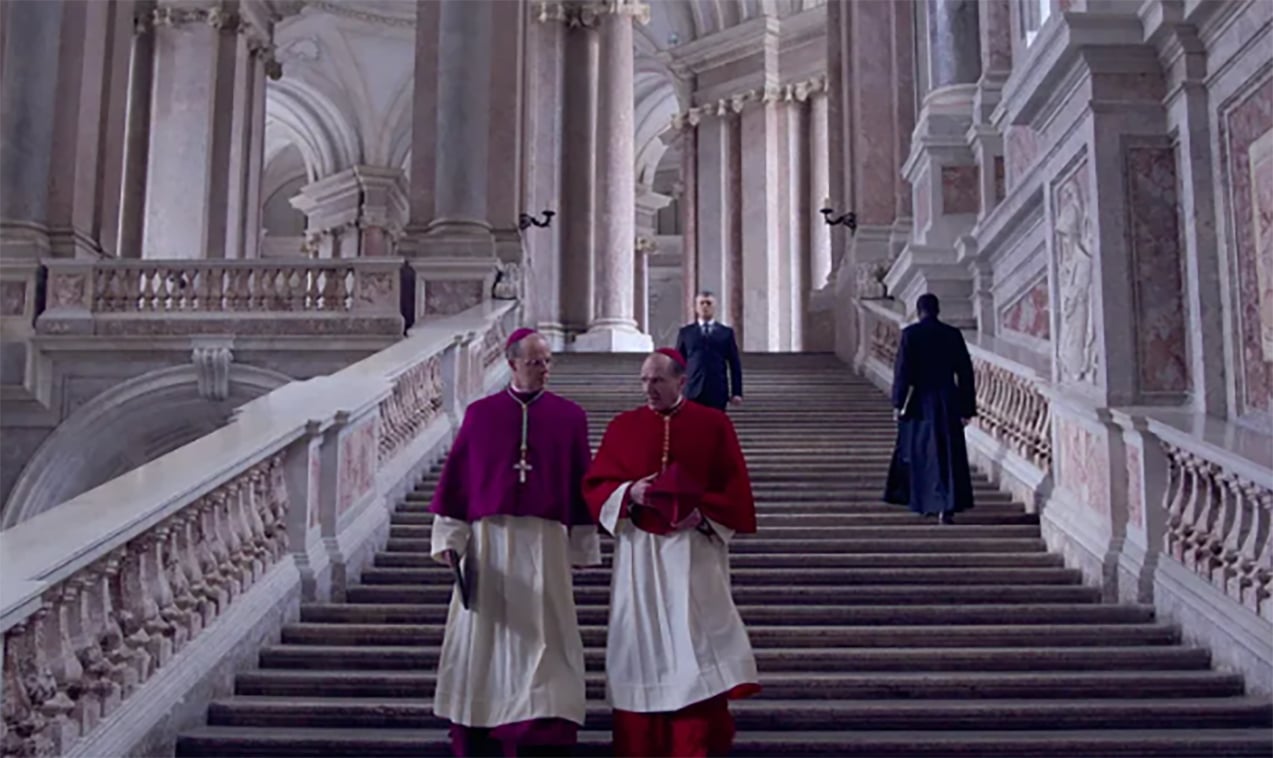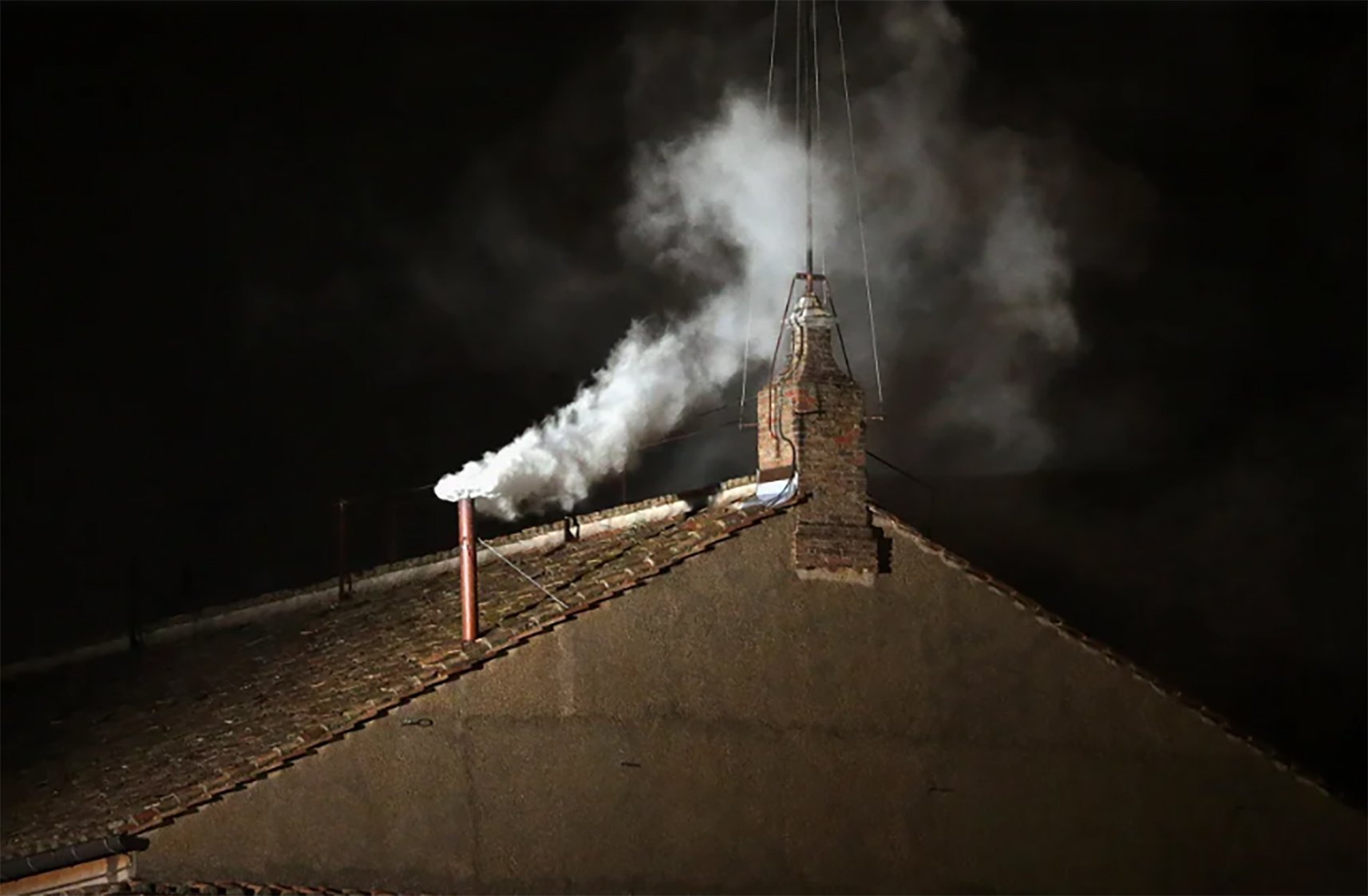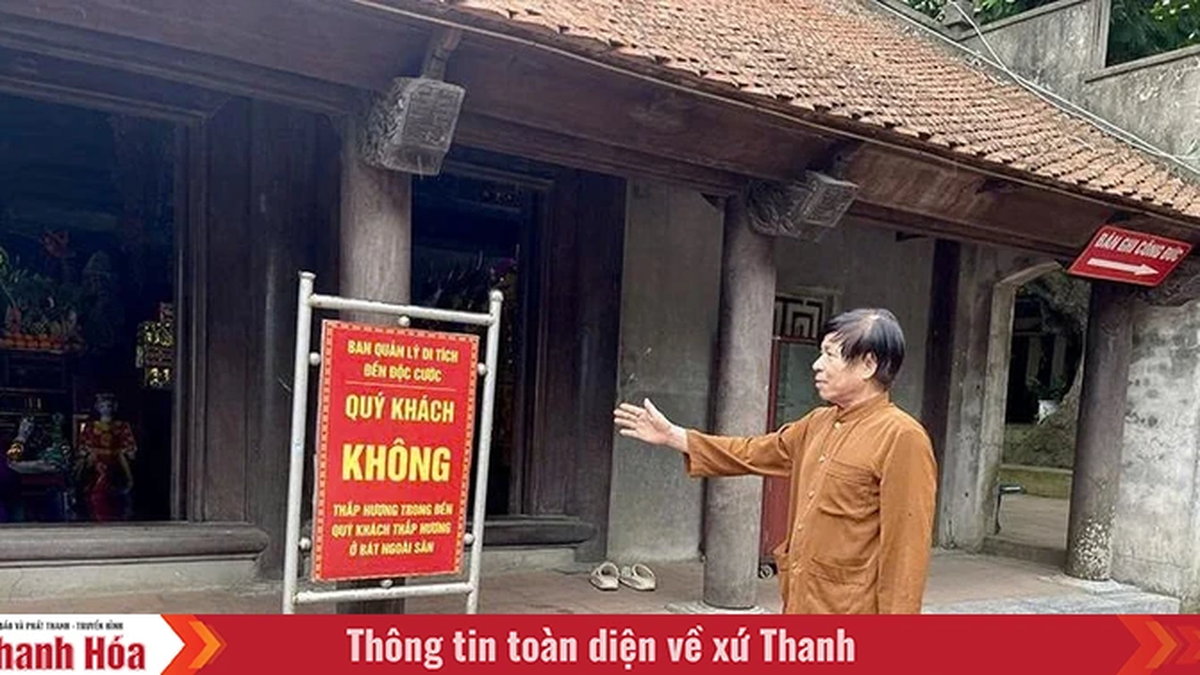Conclave , directed by Edward Berger and starring a stellar cast including Ralph Fiennes, Stanley Tucci, Isabella Rossellini and John Lithgow, offers a fascinating mix of mystery, ritual, tradition but above all the politics of the papal selection process.
The highly anticipated film - which has been a hit at film festivals - is based on British novelist Robert Harris' 2016 thriller, and is described as a story about "the power of God and human ambition".

Ralph Fiennes stars in the film Conclave
At the heart of the plot is the tension between the demands of faith and the desire for high office among the highest-ranking figures in the Roman Catholic Church. The film depicts the whispered discussions in the Vatican corridors and the subtle politics involved, with a backstage process that involves anyone running for office potentially being disqualified.
Conclave faces criticism
Bishop Robert Barron, founder of the Catholic media ministry Word on Fire and one of the world's most followed Catholics on social media, told his X followers to "get away from it as fast as you can". He described the film as marking "almost every awakening" and sending a message that only embracing "the trendy buzzwords of diversity, inclusion, doctrinal indifference".
Barron said the film unfairly portrays the church hierarchy as a "nest of ambition, corruption, selfishness, conservatives as xenophobic extremists and liberals as conceited schemers".
Conclave attempts to portray the battle for souls that takes place during a papal election, highlighting the tension between progressives and traditionalists, the role (or lack thereof) of women. In the case of Cardinal Lawrence, played by Fiennes, it is a crisis of faith.

Brian F. O'Byrne as Cardinal O'Malley (left) and Ralph Fiennes as Cardinal Lawrence
Steven P. Millies, director of the Bernardin Center at the Catholic Theological Union, a theological school in Chicago, said the film's depiction of the process was borne out by reports from cardinals that "a conclave is a political event in the best sense of politics. It is thoughtful, even prayerful, consideration of the future of a community," according to CNN.
To avoid outside lobbying and ensure cardinals are free to choose who they think is best for the job, conclaves take place in strict secrecy, with participants isolated from the world. They are forbidden from speaking to anyone outside the process, which can last several days, including reading media reports or receiving messages.
Only cardinals under the age of 80 are allowed to vote. They cast their votes in the Sistine Chapel, in front of Michelangelo's Last Judgment . Their choices are on paper ballots that are burned after they are counted.
Voting continued until one candidate received two-thirds of the vote. The crowd waiting outside was informed that a pope had been elected when white smoke billowed from the chimney above the Sistine Chapel.
"Great acting and production"
Director Edward Berger tried his best to be as realistic as possible. Writer Harris was assisted by the late British cardinal Cormac Murphy O'Connor when writing the novel. O'Connor attended the 2005 and 2013 conclaves, while screenwriter Peter Straughan and the filmmakers were given private tours of the Sistine Chapel.
Conclave is rich in detail, recreating the rooms of the Domus Sanctae Marthae guesthouse – where the cardinals stayed during the conclaves, with communal meals and buses that shuttled them between voting sessions.

White smoke rises from the chimney of the Sistine Chapel as a new pope is elected on March 13, 2013.
Viewers also witnessed the sealing of the deceased pope's room and the destruction of his ring, the cardinals' oath before voting, the use of chemicals to ensure the correct color of smoke coming out of the chimney to indicate the result (black indicating undecided and white indicating a pope), and the sweeping of the Sistine Chapel for listening devices.
There are, however, small details that the film does not get right, such as the arrangement of the chairs in the Sistine Chapel and the way the cardinals address each other. But the most unbelievable part of the film is the unexpected ending.
Tom Reese, a Jesuit priest and religious commentator based in Washington, DC, gave this verdict to CNN : "The acting and production are superb, but the plot twists are bizarre and unbelievable."
For Millies, the film isn't primarily about the final twist, or even the process of choosing a pope. He sees it as a story about a cardinal grappling with his faith and finding it again – something he describes as "really rewarding to watch."
Source: https://thanhnien.vn/phim-conclave-bi-chi-trich-vi-he-lo-bi-mat-ve-cach-bau-chon-giao-hoang-18524112007453606.htm




















































![[Maritime News] More than 80% of global container shipping capacity is in the hands of MSC and major shipping alliances](https://vphoto.vietnam.vn/thumb/402x226/vietnam/resource/IMAGE/2025/7/16/6b4d586c984b4cbf8c5680352b9eaeb0)













































Comment (0)